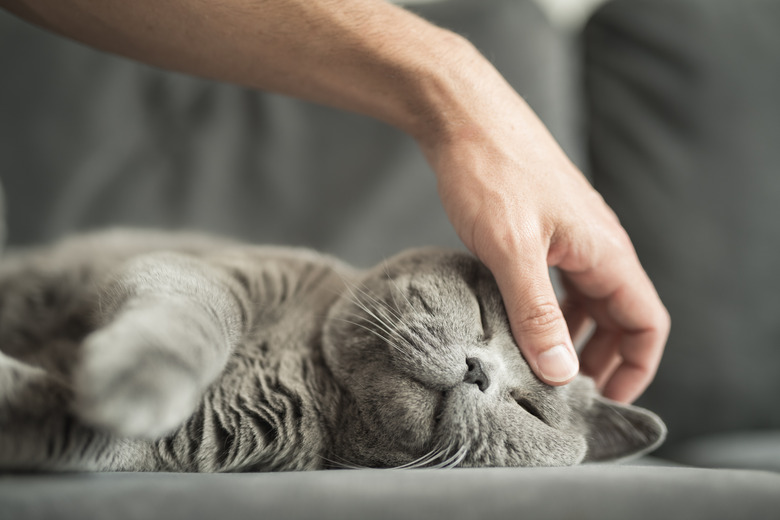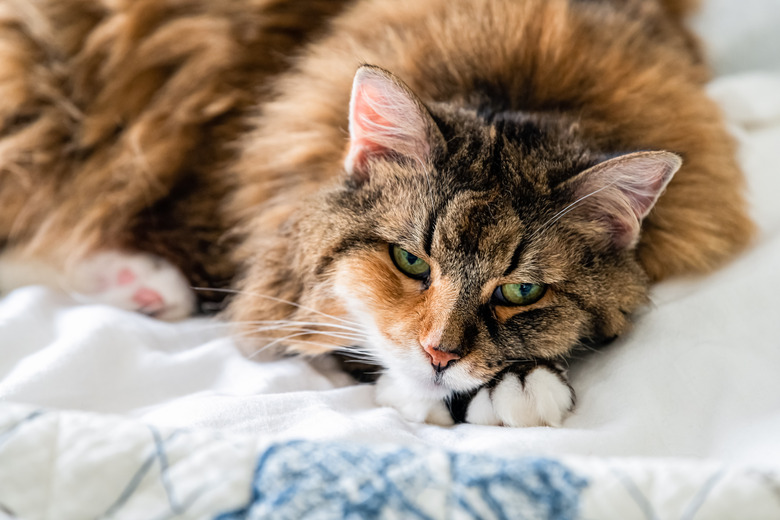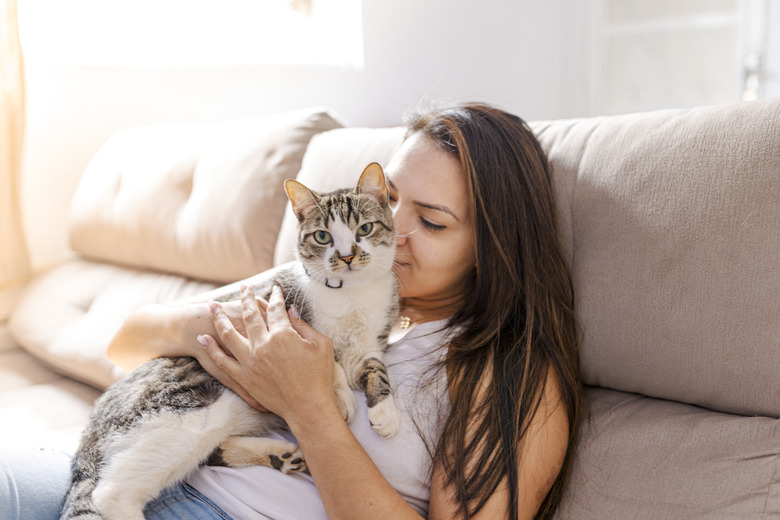Olive Oil For Constipation In Cats
For cat and kitten constipation, olive oil makes a good at-home treatment. Along with other remedies you may already have around the house, adding a couple teaspoons of olive oil to food or water is a simple, cost-effective way to get things moving.
Cat and kitten bowel movements
Cat and kitten bowel movements
When it comes to kittens, the number of times they go to the bathroom per day varies. Kittens should poop one to six times daily, and kittens under a month old sometimes need help to eliminate. If it's been more than 48 hours since your kitten's last bowel movement and if she seems bloated or lethargic or is straining and crying in the litter box, contact your veterinarian.
For adult cats, constipation is when they have not defecated in two days or if they have very small, dry feces and strain to eliminate. If this happens, treatment is needed to help your cat poop.
Note that diet and adequate water supply can help reduce the occurrence of constipation in older cats, but sometimes, medicines or non-petroleum hairball treatments may be needed to help your feline feel better. A small amount of coconut oil can also work to help clear cat hair from your pet's gastrointestinal tract.
Causes of constipation in cats
Causes of constipation in cats
Cat and kitten constipation can be caused by various problems, including consuming too much fur during cleaning, or a gastrointestinal obstruction, such as a foreign body or tumor.
It can also be caused by an injury, like a fractured pelvis, or health conditions, including arthritis, orthopedic problems, or neurologic conditions. Sometimes, a cause cannot be determined. For less frequent instances of cat constipation, using home remedies and switching the cat to a food with more moisture may be enough to treat a feline's ailments.
Cat or kitten constipation and olive oil
Cat or kitten constipation and olive oil
For cat or kitten constipation, olive oil should only be used occasionally. It should not be given as a regular treatment. If your cat is straining to defecate, add 1/2 tablespoon of olive oil to his food or water. Use less olive oil when treating a constipated kitten, and if the kitten is under a month old, contact your veterinarian.
Other constipation treatments
Other constipation treatments
Besides olive oil, your veterinarian may recommend a laxative for your cat. Only go this route based on a prescription.
Your veterinarian may also recommend an enema. This route is something that should only be performed by an animal care professional since the process can be complicated and painful and may require sedatives. Do not administer an over-the-counter enema on your cat since some ingredients in it can be harmful to felines.
Diet and constipation prevention
Diet and constipation prevention
Once things clear up, to prevent future episodes of constipation, feed your feline a diet high in moisture, and make sure she has access to plenty of water bowls around your home. Larger bowls are more cat-friendly since they can help prevent their whiskers from bumping the sides.
If your cat is on all dry food, consider making a slow transition to a completely canned-food diet. Water can also be added to your cat's kibble to create a moist, gravy-like consistency. Canned pumpkin can also be mixed in with your pet's dinner to add moisture.
Overweight cats may be more prone to constipation. Be sure your feline gets a lot of exercise. Play with your pet daily to get him to move around more often.


